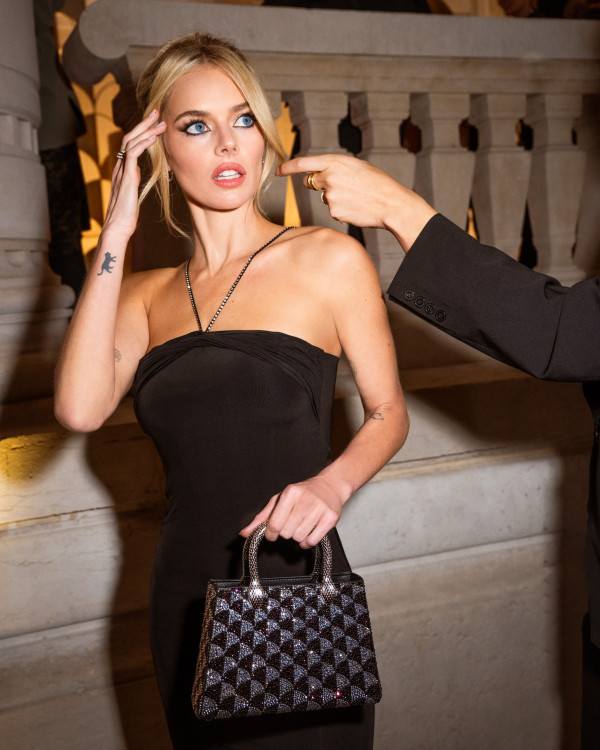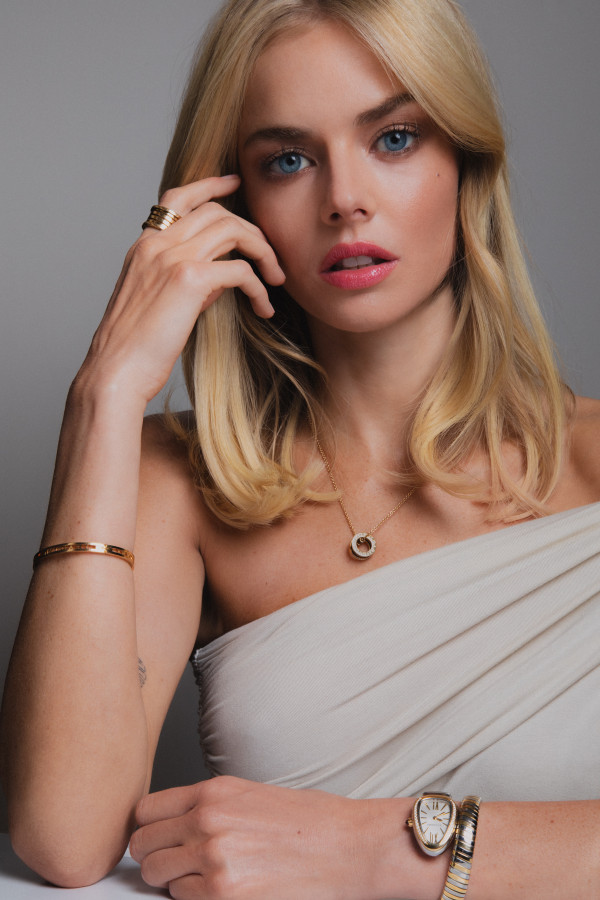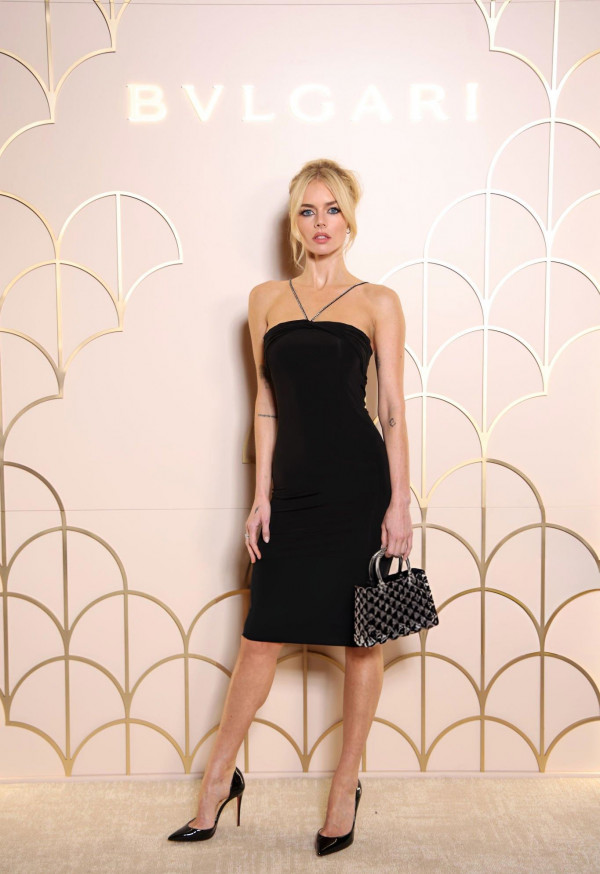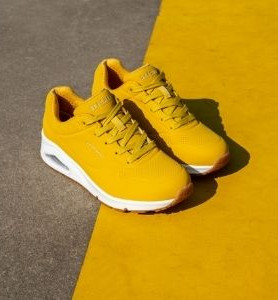From the days of Summer Bay to Hollywood's goriest films, Samara Weaving shares everything that has kept her grounded on her journey thus far
Samara Weaving tells me she gets ‘real nervous’ at big, fancy events. It’s a confession that feels like the first moment of relatability—almost an olive branch—and one that helps me understand more about who the Hollywood horror darling really is from the outset. But the truth is, I feel like I know her—or at least, versions of her. I’ve been watching her on the screen since I was 13; first as Indi Walker on Home & Away, before the actress veered down a bloodier path.
With an impressive resume that includes Ready Or Not, Scream VI and The Babysitter alongside Babylon, Nine Perfect Strangers, and the very iconic Home & Away, the Australian actress is someone who cares very deeply about her craft. Now a certified style icon, her recent partnership with Bvlgari has added a new dimension to her career, and in an exclusive and refreshingly candid conversation with Remix, Samara reflects on all the excitement and nuances her industry offers.

The Hollywood Scream Queen is far from a modern phenomenon; in fact, Hollywood's Scream Queens have long been a cinematic breed apart, the women who blend vulnerability with unrelenting strength, often at the mercy of slasher villains or supernatural terrors. In many ways, the archetype began in the 1960s with Janet Leigh's iconic shower scene in Psycho, a moment that redefined female roles in horror—part victim, part survivor. Over the decades, these women, typically placed in perilous, life-or-death situations, have been at the forefront of the genre's evolution, cementing their status as both icons of fear and fierce independence. Jamie Lee Curtis, the ultimate Scream Queen, became a genre-defining figure with Halloween (1978), effortlessly balancing terror with quiet resolve in a role that would define a generation's expectations of the horror heroine. Then came the 1990s, a golden era of self-aware slasher films, where actresses like Neve Campbell (Scream) and Sarah Michelle Gellar (I Know What You Did Last Summer) carved out roles that merged self-preservation with pop culture prowess, flipping the trope of the distressed damsel on its head. Today, pioneered by women like Samara, the Scream Queen mantle is often reimagined by women who bring their own humour and self-reflection to their characters, but the core remains the same: a fierce will to survive in the face of unimaginable terror.

And this is what I think speaks volumes about Samara’s character and tenacity. In our fleeting moments together, it is clear that she takes this industry—and her role in it—seriously and with great pride. Sure, it could be argued that her upbringing led her to this pivotal point. That logic makes sense because, as a Weaving, Samara grew up around the industry. Her father, director Simon Weaving, surely had some influence, and her uncle, the very recognisable Hugo Weaving, has made the family name a household one with his epic roles in the likes of The Matrix, The Lord of the Rings, and V For Vendetta. But it is another film—one that didn’t involve her family so directly—that she credits for her career. ‘I was about 11 when my family and I went to see Pirates of the Caribbean,’ she recalls. ‘I was furious afterwards because I desperately wanted to be a part of whatever the hell had just happened to me. As soon as I realised you could play make-believe as a job, I thought, ‘What are we even doing here? Let’s go people.’’
She reflects on an iconic advertisement featuring her The Dressmaker co-star, Nicole Kidman, for AMC Theatres. She tells me she felt everything mentioned in the very quotable spiel happen to her. ‘We come to this place… for magic,’ Nicole Kidman begins. ‘We come to AMC Theatres to laugh, to cry, to care. Because we need that, all of us, that indescribable feeling we get when the lights begin to dim. And we go somewhere we've never been before, not just entertained, but somehow reborn. Together. Dazzling images on a huge silver screen. Sound that I can feel. Somehow, heartbreak feels good in a place like this. Our heroes feel like the best part of us, and stories feel perfect and powerful. Because here they are.’ It is a familiar feeling that the stars describe: one that reminds me of rainy weekends with my cousins, buckets of popcorn and jaffas, acting out our favourite characters afterwards.
And 21 years on, Samara’s enthusiasm for her craft has not waned. It is clear to me that she is in this industry not for the accolades—of which she has many—or the red-carpet opportunities. But what I love most, and what I think we should begin to commend actors on further beyond their relatability and enduring sense of style, is her delivery and performance. You would be hard-pressed to find people in the industry who are committed to the nuances of gritty, complex, and sometimes-traumatising roles the way Samara is. To be so genred in your work must be daunting, but it is clear that right now, she is one of the most technically-adept horror actresses in Hollywood.
She tells me that, in a sense, ignorance is bliss, and she holds this with reverence. ‘The best decision I’ve made is never reading reviews or looking online at how projects are being received,’ she explains. ‘I’m a sensitive little ding dong for starters, but also, I’ve learned if I derive my self-esteem from how well a job is doing, that’s a dangerous place to be. I want my sense of self-worth to come from being a good friend, a good daughter, a good Assassin’s Creed player—all the real stuff.’ There’s something quite liberating about this school of thought, knowing that even actors at the top of their game are still trying to shake the strange sensation of comparison and judgement we all must contest daily. That they, like me, are recognising the things that make them feel good in life are often those closest to home.

Samara and I meet through a mutual friend; Bvlgari. It was announced in October that the actress was a new ambassador for the brand—which, in my eyes, makes her one of the most well-dressed women in the world—and whether she likes to admit it or not, it is evident that Samara carries significant sartorial appeal. I asked her about this very special relationship, and she was candid and refreshingly honest in her response. ‘I get real nervous at big, fancy events,’ she begins. ‘But let me tell you—a gorgeous dress and some Bvlgari jewels—how can you not have fun and feel fabulous with those on?’
As a new ‘Friend of the House’, Samara finds herself stepping into a legacy of enduring elegance and innovation, an ideal match for an actress whose career has flourished at the intersection of high-octane thrills and nuanced performances. Her latest role, in partnership with one of the world's most revered luxury brands, marks a new chapter—one where her off-screen persona offers the same refined intensity that has made her a rising star in Hollywood. The Roman jeweller, synonymous with Italian craftsmanship and a bold, avant-garde sensibility, is as much about heritage as it is about reimagining luxury for today’s sartorial set. For Samara, aligning with the storied maison feels like a natural evolution. Her recent debut at Bvlgari’s Paris event, celebrating Mary Katrantzou’s first accessories collection, further cemented her place among Hollywood’s most stylish—and the brand’s—and her partnership with Bvlgari underscores not just a shared appreciation for artistry but an enduring style that transcends.
And while this weight must carry some kind of pressure, the actress finds ways to mitigate the toll it takes. She tells me that this industry has been filled with opportunities and moments where she must listen to her gut and allow herself to be guided by intuition. This informs the relationships, connections and abundant opportunities she has built. ‘It’s easy to get caught up in other people’s opinions and live in fear when I’m making a decision,’ she tells me. ‘What project should I do next? Is this the right thing to do? What if there are no snacks? What if they use the really sticky fake blood? It’s been a hard and weird lesson for me, but I’ve learned to listen to my gut. Not to worry about things that are out of my control. The process is more important than the outcome.’
Although she doesn’t say it, I can tell that Samara is incredibly and genuinely down to earth. She is someone who feels deeply and passionately about the things that matter to her: about cinema as a craft, about the way it can make people feel. She recognises that this is a powerful position to be in, and she doesn’t use that privilege flippantly.
Of course, the opportunities ahead for Samara are bright. She has been in the industry for nearly two decades, but something about her resume and her excitement for projects on the horizon indicate the biggest moments of her career are still to come. ‘I’m so excited about next year,’ she offers. ‘There’s going to be some very special projects coming out, and I’m so excited to see them—and celebrate them with the cast and the crew.’
And on the topic of escapism, because it has piqued collective interest for the summer issue, she reminds me that escapism is a very useful tool for momentary healing and is a notion that doesn’t always have to look the same. ‘Escapism is a great tool to self-soothe,’ she suggests. ‘Unless I go too long, and it starts to get weird and turn into disassociation. A cosy theatre with a giant bag of popcorn and a diet coke? Forget about it.’ It’s a refreshing take: a suggestion that we don’t always have to think too deeply. In fact, it’s almost an encouraging call to find the little things that revive us and guide us through our days, those often quite ordinary moments that, like Samara, make us want to be a part of whatever the hell has just happened to us.



